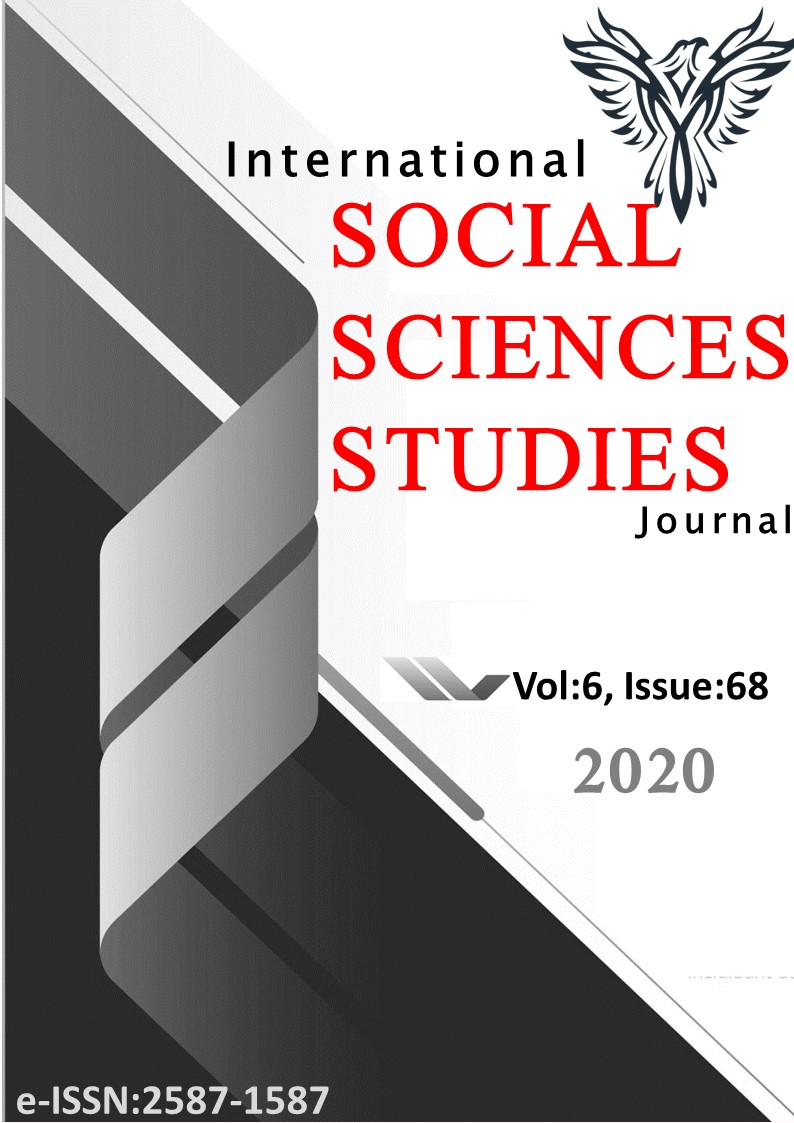GENÇLERDE KARİYER STRESİNİN VE DUYGU-TUTUMLARININ ÖLÇÜLMESİ: ÜNİVERSİTE ÖĞRENCİLERİ ÜZERİNDE UYGULAMALI BİR ARAŞTIRMA
Author :
Abstract
Stres, bireyin genel iyilik haline veya huzuruna yönelik bir tehdit olarak tanımlanmaktadır. Günlük ev işlerinden sosyal yaşama, eğitim hayatından çalışma yaşamına kadar birçok alanda stres kaynağı bulunmaktadır. Bireylerin en çok strese maruz kaldığı yıllar ise üniversite yılları olarak işaret edilmiştir. Bu çalışmada, bir devlet üniversitesinde öğrenimini sürdürmekte olan öğrencilerin kariyer stresinin belirlenmesi amaçlamıştır. Kariyer stresinin belirlenmesinde nitel ve nicel araştırma teknikleri bir arada kullanılarak “karma yaklaşım” izlenmiştir. Araştırmanın nicel basamağında kariyer stresi ölçeği yardımı ile yaşları 17-35 arasında değişen 384 lisans ve lisansüstü seviyede üniversite öğrencisinin görüşleri alınırken, nitel görüşmeler kapsamında ise yine farklı eğitim seviyelerinde 22 kadın ve erkek öğrencinin görüşü alınmıştır. Araştırman nicel verileri sonucunda, gençlerin “kariyer geleceklerine ilişkin isteklerini henüz tam olarak tanımlayamamış olmaları” sebebiyle kendileri üzerinde öncelikli stres kaynağı oluşturdukları görülmüştür. Bunun dışında kariyer planlama süreçlerinde aileleri ile çatışma yaşamaları ve hem okul hem de iş hayatına yönelik çalışmak durumunda olmalarının kendilerinde strese sebep olduğu sonucuna varılmıştır. Ölçek maddelerinin tümü için cinsiyet ve eğitim durumuna göre farklılık sorgulandığında ise anlamlı farklılık olmadığı görülmüştür. Nitel bulguların sonucunda ise, kadın öğrencilerin kariyer geleceklerine ilişkin ağırlıkla “yalnızlık” duygusunda, erkeklerin ise “karamsarlık” duygusu içerisinde olduğu görülürken; pişmanlık, korku, mutsuzluk gibi olumsuz duyguların gençlerin kariyer geleceklerinde baskın duygular olduğu anlaşılmıştır.
Keywords
Abstract
Stress is defined as a threat to the individual's general well-being or peace of mind. There are stress sources in many areas from daily housework to social life, from education to working life. The years when individuals were exposed to the most stress were marked as university years. In this study, it was aimed to determine the career stress of students who are studying at a public university. In the determination of career stress, “mixed approach” was followed by using qualitative and quantitative research techniques together. While the Career Stress Scale was applied as an online questionnaire in the quantitative part of the research, open-ended question statements were used to obtain qualitative data. While 384 students aged between 17-35 from university student participated in the research scale, the opinions of 22 students were taken within the scope of qualitative interviews. With the coding of qualitative data, sentimental analysis was obtained, and the expectations of individuals regarding their career futures were detailed based on emotion. As a result of the quantitative data of the research, it was seen that the young people were the primary source of stress on themselves because they have not yet fully defined their desires for their career futures. Apart from this, it was concluded that they had a conflict factor with their families during their career planning processes and that they had to work for both school and business life. It was observed that there was no significant difference when questioning the difference according to gender and education level for all scale items. As a result of qualitative findings, it is seen that women feel “loneliness” with respect to their career future and men feel “pessimism”; It was understood that negative emotions such as regret, fear, unhappiness are dominant emotions in the career future of the youth.





